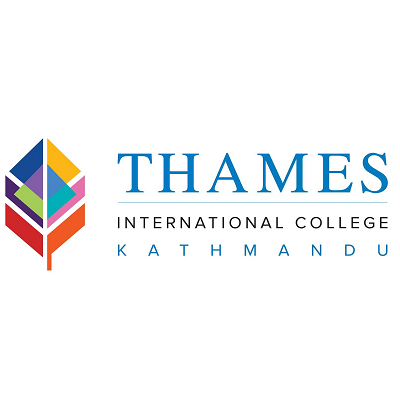Overview
Bachelor of Business Management (BBM) at People’s Campus, Paknajol, Kathmandu
Bachelor of Business Management (BBM) at People’s Campus, Paknajol, Kathmandu runs under Tribhuvan University (TU) in an eight-semester, 120-credit format.
The program places you in core management study with courses in accounting, finance, marketing, human resource, operations, business communication, information systems, and research methods. Admission follows TU rules, including CMAT and a campus interview.
Students study in a community-based, non-profit environment that values steady learning and clear academic routines.

Overview
People’s Campus delivers BBM inside the main and annex blocks at Paknajol. Classes run across morning and day shifts so Students can plan travel and home schedules.
Learning takes place in 60+ classrooms, three computer labs, a library with a wide collection, and an e-library for digital resources.
An auditorium hosts presentations, seminars, and talk programs. Administrative and academic work is supported by an Education Management Information System, and security coverage includes CCTV across key points.
Highlights
-
TU-affiliated BBM; 8 semesters; 120 credit hours
-
Balanced mix of management theory and applied coursework
-
Internal assessments, presentations, term papers, and semester exams
-
Library, e-library, and lab access for assignments and project work
-
Section-wise mentoring and counselling for study plans and electives
Curriculum Details
The department follows TU’s semester plan and shares a semester outline before classes begin. You complete foundations, functional courses, and project-oriented tasks over four academic years.
Foundation coverage
-
Principles of Management and organizational concepts
-
Business Economics for decision contexts in Nepal
-
Business Mathematics and Statistics
-
Business Communication and report writing
-
Introduction to Accounting and Finance
-
Information Systems basics for data handling
Functional coverage
-
Financial Accounting; Cost and Management Accounting
-
Marketing Management; Consumer Behavior; Sales and Distribution
-
Human Resource Management; Organizational Behavior; labor relations
-
Operations Management; supply topics and quality basics
-
Entrepreneurship; business environment in Nepal
Research and project elements
-
Research Methods and proposal basics
-
Case analysis on local sectors, group reports, and presentations
-
Final-year capstone or project report as per TU plan
Electives vary by semester planning and seat availability. The department issues a semester plan that lists credit load, assessment points, and submission windows.
Objectives
-
Build a clear base in management concepts and functional areas
-
Strengthen number work for accounting, costing, and basic finance
-
Develop analysis, writing, and presentation habits for business reports
-
Prepare Students for entry-level roles or further study in management at master’s level
Scope
BBM graduates move into roles across banking support, sales coordination, HR assistance, customer relations, logistics, trading units, and junior analyst tasks. Many continue toward MBS, MBA, or specialized master’s programs after gaining experience. Some plan small business activity once they gain exposure to local markets and basic compliance.
Learning Outcomes
Graduates should be able to:
-
Prepare and interpret basic financial statements and cost sheets
-
Explain pricing, demand, competition, and market structures in plain terms
-
Draft concise reports with tables, charts, and references
-
Present ideas with clear slides and handouts during viva and seminars
-
Work in groups using simple timelines, role clarity, and documented handover
Skill Development Modules
-
Quantitative practice: Ledger posting, bank reconciliation, variance snapshots, budgeting drills
-
Communication: Email etiquette, meeting notes, memo writing, and short pitch segments
-
Analysis: Sector notes on retail, banking, tourism, or trading based on current sources
-
Digital tasks: Spreadsheet tables, charts, and simple dashboards in the labs
-
Professional habits: Time plans, reading logs, citation basics in the library
A typical week may include a two-minute product pitch, a worksheet on break-even points, and a short slide deck on a local business case. These activities help you link classroom theory with everyday decisions.
Teaching Methodology
Faculty publish a semester plan at the start, listing unit coverage, internal tests, and project checkpoints. Course progress is tracked using teacher log sheets and section-level reviews so pacing remains steady.
Classes mix lecture, guided Q&A, group discussion, and student presentations. Extra sessions run when a section needs closer support on topics such as working capital, ratio analysis, sampling, or channel strategy. Guest talks from practice and alumni circles add workplace context. Student feedback helps adjust pacing and informs revision classes before semester exams.
Admission Requirements
-
Eligibility: Minimum C grade in each subject of Classes 11 and 12 (or equivalent) as per TU rules
-
Entrance: CMAT conducted by Tribhuvan University
-
Campus round: Short interview and document check at People’s Campus
-
Documents: 10+2 transcripts and character certificate, CMAT admit/score, ID copy, and recent photos
-
Seat plan: Announced in the admission notice with dates and instructions
Final section allocation and elective confirmation follow the department’s semester plan and seat availability.
Career Opportunities
BBM prepares you for:
-
Banking and finance support functions, teller operations, and back-office tasks
-
Accounting and audit assistance in firms and SMEs
-
Sales, distribution, and client service in goods and services companies
-
HR support, payroll assistance, and training coordination
-
Supply, logistics, and procurement support in trading and e-commerce
-
Project coordination roles that require scheduling and basic reporting
Growth depends on internship quality, project performance, and follow-up study. Many graduates add certifications or move to master’s study for mid-level roles in the long run.
Scholarships and Financial Aid
People’s Campus announces merit-linked admission scholarships for BBM each intake:
-
A+ (≥ 90%): 30%
-
A (80%–89.99%): 15%
-
B+ (70%–79.99%): 10%
-
B (60%–69.99%): 5%
Additional provisions across bachelor programs:
-
Semester topper: monthly tuition fee waiver for the top performer in each semester
-
People’s Campus loyalty: +5% for Students who completed +2 at People’s Campus, added to the admission scheme
Seats and categories are limited and follow the annual policy. Applicants check the current notice for deadlines and required documents.
Why Choose This Course?
-
TU semester framework with clear assessment points
-
Library, e-library, and lab access that supports daily study needs
-
Regular presentations, cases, and group tasks that build confidence
-
Mentoring, counselling, and revision support at section level
-
Community-based setting that values accessible study routines
Conclusion
BBM at People’s Campus offers a steady route into Nepal’s business field. You study management ideas across accounting, finance, marketing, HR, and operations while building habits in writing, number work, and digital tools. Short presentations, case notes, and project work help you move from classroom learning to everyday workplace expectations. Students who plan to continue toward MBS, MBA, or sector-specific roles gain a clear base and practical practice over eight semesters.






















